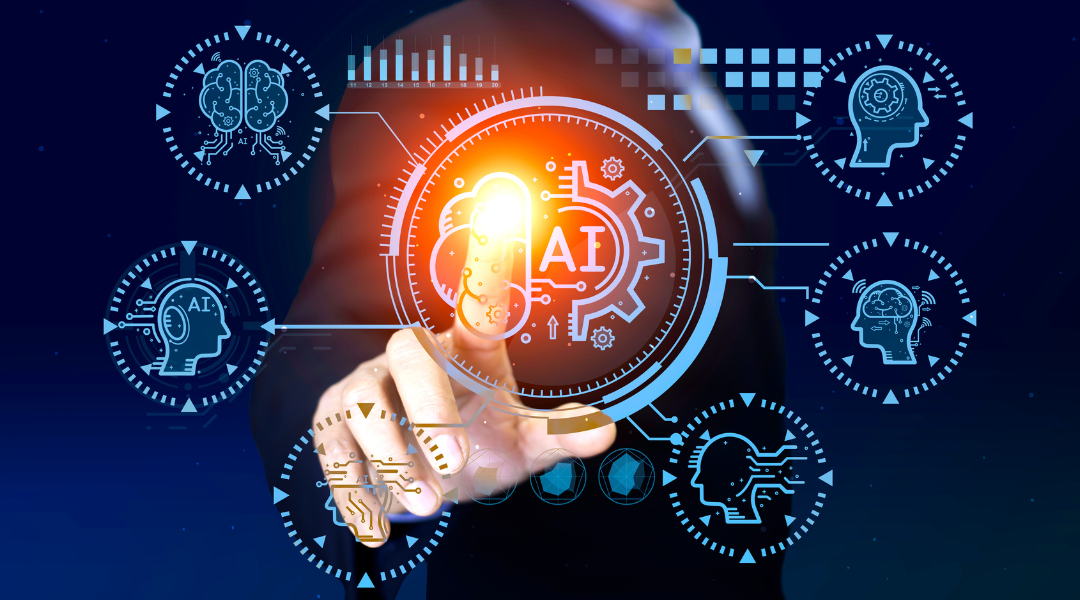In B2B marketing, staying ahead of the curve isn’t just an advantage; it’s a necessity. As we sail through the digital age, Artificial Intelligence (AI) has emerged as a formidable ally for marketers, offering tools and insights that were once the stuff of science fiction.
The Digital Transformation of Marketing
A century ago, the marketing toolkit was limited to tangible media like flyers and billboards. Fast forward to the present, and we’re witnessing an era where the digital revolution predominantly shapes marketing strategies. AI has become a cornerstone of modern marketing tactics, allowing for automation that saves time and enhances the precision and effectiveness of campaigns.
Predictive Marketing: Anticipating the Future
AI’s ability to digest vast amounts of data has given rise to predictive marketing. AI can forecast consumer behavior through advanced analytics, allowing marketers to tailor their strategies to meet their target audience’s anticipated needs and preferences. For instance, by analyzing factors like age, gender, and purchase history, AI can help segment target groups and identify which products will likely resonate with each segment.
Personalization at Scale
In our hyper-connected world, consumers expect—and value—personalized experiences. A staggering 80% of consumers are more inclined to engage with a brand that offers customized interactions. Leveraging AI, businesses can deliver these bespoke experiences efficiently, even when dealing with large volumes of customer data.
Chatbots: Conversational Marketing at Its Finest
Chatbots exemplify AI’s transformative role in marketing. These AI-driven assistants facilitate real-time customer engagement, addressing queries effectively and enhancing the overall customer experience. The chatbot market is burgeoning, predicted to reach around $1.25 billion by 2025, underscoring the growing reliance on AI tools for customer interaction.
AI in Content Creation and Sentiment Analysis
AI’s role extends into content generation, with tools like GPT-3 producing text that rivals human-written content in quality. Additionally, sentiment analysis tools enable marketers to gauge public sentiment toward their brand, interpreting emotions and opinions from text data across social media and review platforms.
Predictive Lead Scoring: Identifying Prospective Clients
Predictive lead scoring models use AI to rank potential clients based on their conversion likelihood. By employing these models, companies have seen a 20% improvement in conversion rates, making AI an invaluable asset in pursuing qualified leads.
The Statistical Backdrop
The statistics are clear: AI is reshaping the marketing landscape. By 2028, the global market revenue for AI in marketing is forecasted to hit $107 billion. Already, 90% of marketers utilize AI tools to automate customer interactions, and 88% attest to AI’s role in personalizing the customer journey. Moreover, AI-driven chatbots are not just a novelty but are actively used by 57% of B2B marketers in the U.S. to understand their audience better and by 55% to generate new leads.
Overcoming Barriers and Ethical Considerations
As we integrate AI into marketing strategies, navigating potential barriers, such as the need for AI expertise, and addressing ethical concerns related to data privacy and AI governanceis crucial.
Conclusion: The AI-Driven Future of Marketing
AI isn’t just a fleeting trend; it’s a strategic imperative that can unlock new marketing efficiency and creativity dimensions. As AI technology continues to evolve, it offers a plethora of applications that span from ad targeting to content personalization, promising a future where marketing is not only more effective but also more attuned to the nuanced preferences of customers.
At Intentional CMO, we harness AI’s capabilities to devise marketing strategies that forge a deeper connection with your audience. Are you eager to propel your B2B marketing forward? Reach out for a complimentary consultation, and together, let’s unlock the vast possibilities AI has to offer.

